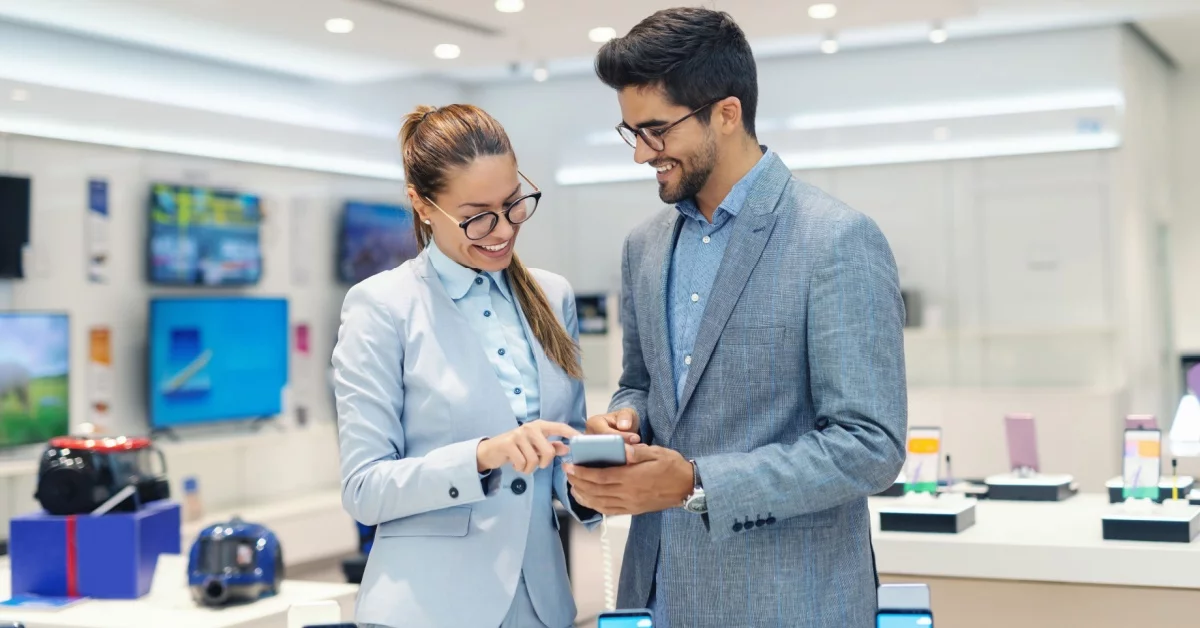
Since 1991, Credico has been a face-to-face first organization. A people business, if you will. Our brand has prioritized, even mastered, the art of in-person sales. That’s because even with the ongoing evolution of technology, we still believe face-to-face, human-to-human interactions are the bedrock of sales and our society.
Don’t get us wrong; we’ve heard it all: that face-to-face is an antiquated sales approach. That brick-and-mortar businesses can’t and won’t win the battle against e-commerce sales. We’ve heard rumors suggesting that human sales teams can’t keep up with ever-changing technology and online chat capabilities, among many other things about our industry. We don’t pay attention to those rumors because we know the foundation of our business is based on a core part of our human existence that will never go away — humans need community and to interact with one another. It’s part of our makeup, and removing any aspect of human interaction interferes with human nature.
If you don’t believe us, here are the very real statistics on the negative impact not having social connections has on our health: socially isolated individuals have a 29% increased chance of having heart disease, a 32% higher chance of having a stroke, 50% increased risk of dementia for older individuals who are lacking social interactions and there is a 60% higher risk of premature death due to social disconnection or isolation. A study on friendship in the United States indicates that 30% of American adults feel lonely at least once a week, while 8% have no close friends. Based on this evidence, we can see that socializing is a form of self-care and social responsibility. That’s why face-to-face sales, where people can interact in real time as their genuine selves, are a key part of having a healthy community, society, and world.
While the sale is essential for businesses that offer in-person sales, our interaction with customers gives our work meaning on both sides. Face-to-face sales help both the sales representatives and the customers, significantly impacting the health of everyone involved at each point of purchase.
Here’s what we mean.
Did you know that loneliness costs companies billions every year? It’s not just personal, it impacts our work, too. Approximately $154 billion is spent annually by employers on lonely team members because that lack of human connection directly impacts productivity and increases absenteeism. Considering loneliness in the United States is on the rise, with more than two out of three employees and adults claiming they are lonely, we see face-to-face sales as part of the remedy to this epidemic.
Debunking face-to-face sales myths in business is important to us because we can’t afford and refuse to contribute to the economic and social costs we all pay when we prioritize digital sales over human connection. Such myths like “face-to-face sales aren’t sustainable” or “in-person sales are too costly,” or “businesses just can’t find good help” are simply unhelpful when we look at the true impact of disconnecting from the outside world. Let’s face it: socially, many of us are hurting and need an outlet, and places like the neighborhood coffee bar, barbershop, or the corner store are key to drawing people out of their digital shells. The local dress shop that has been in the community for decades is not just a place to buy a dress but is an opportunity to exchange memories and build a connection that could lead to a sense of belonging, which, over time, eradicates loneliness.
Believe it or not, face-to-face sales can offer a path to improved social connection, which strengthens communities one sale at a time. At the same time, while someone may see the sale of something as mundane as patio furniture as a simple transaction, we know that transaction is a treatment, a benefit and improvement to someone’s life, and sometimes even a balm for the secret wounds many of us have that we don’t share. Face-to-face sales is social sales. It’s a way to connect, strengthen social skills, and stay healthy. We don’t call shopping therapeutic for nothing. Shopping is therapeutic because it’s the healing energy we get from interacting with a fellow human.
We need each other, and face-to-face sales is a way to show up for ourselves, our communities, and each other.
